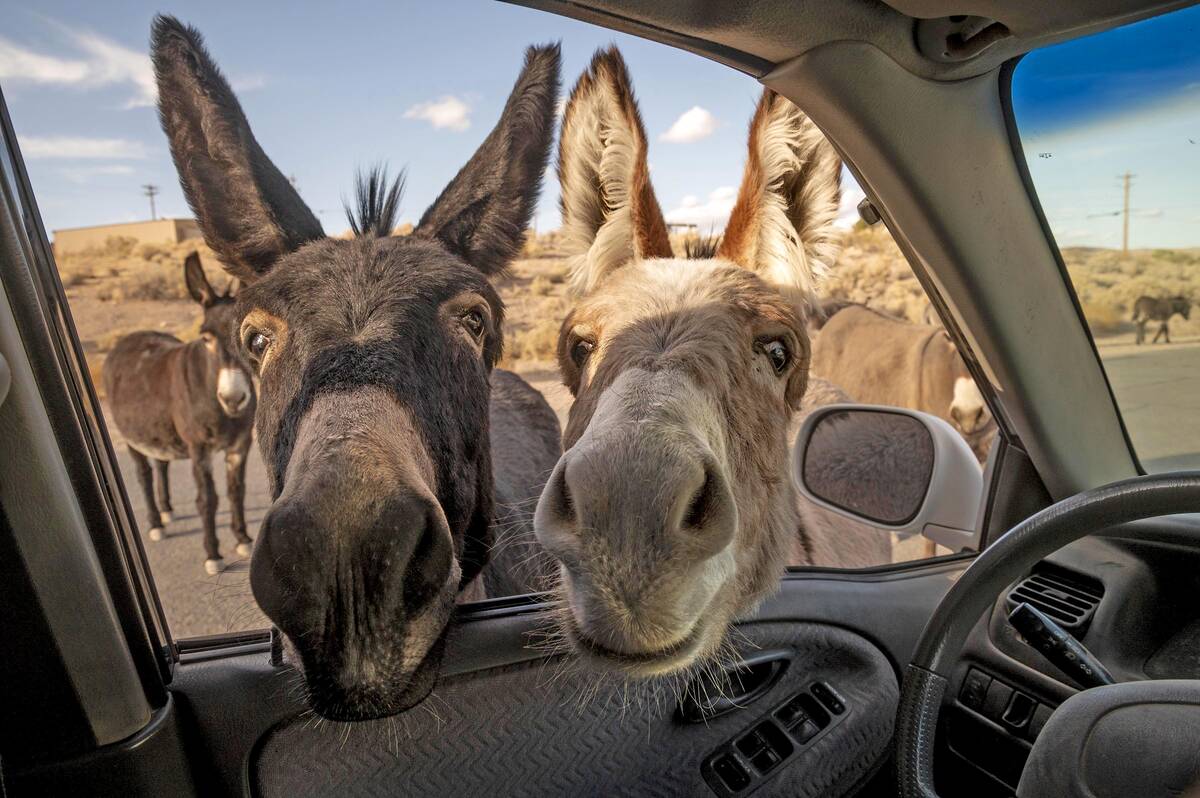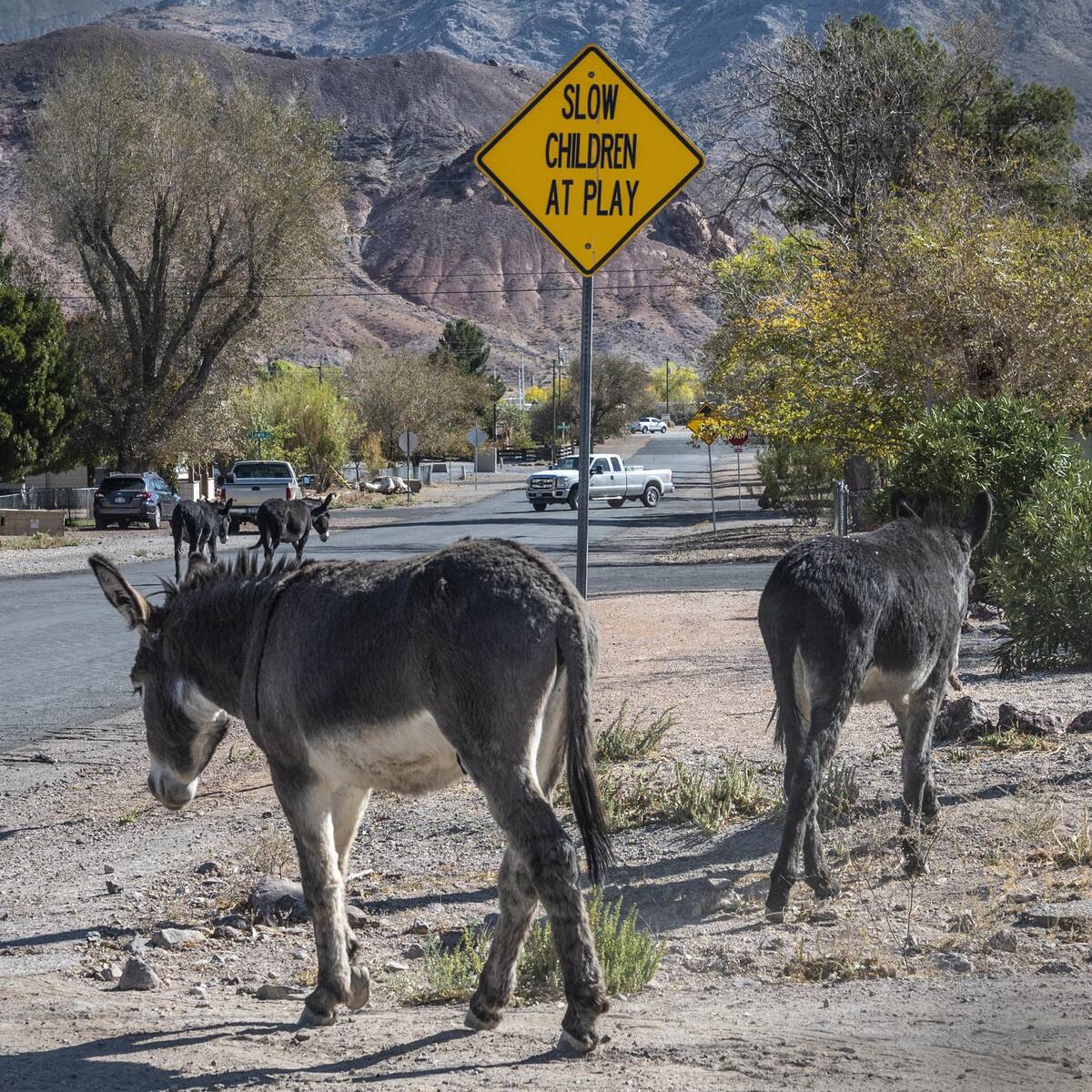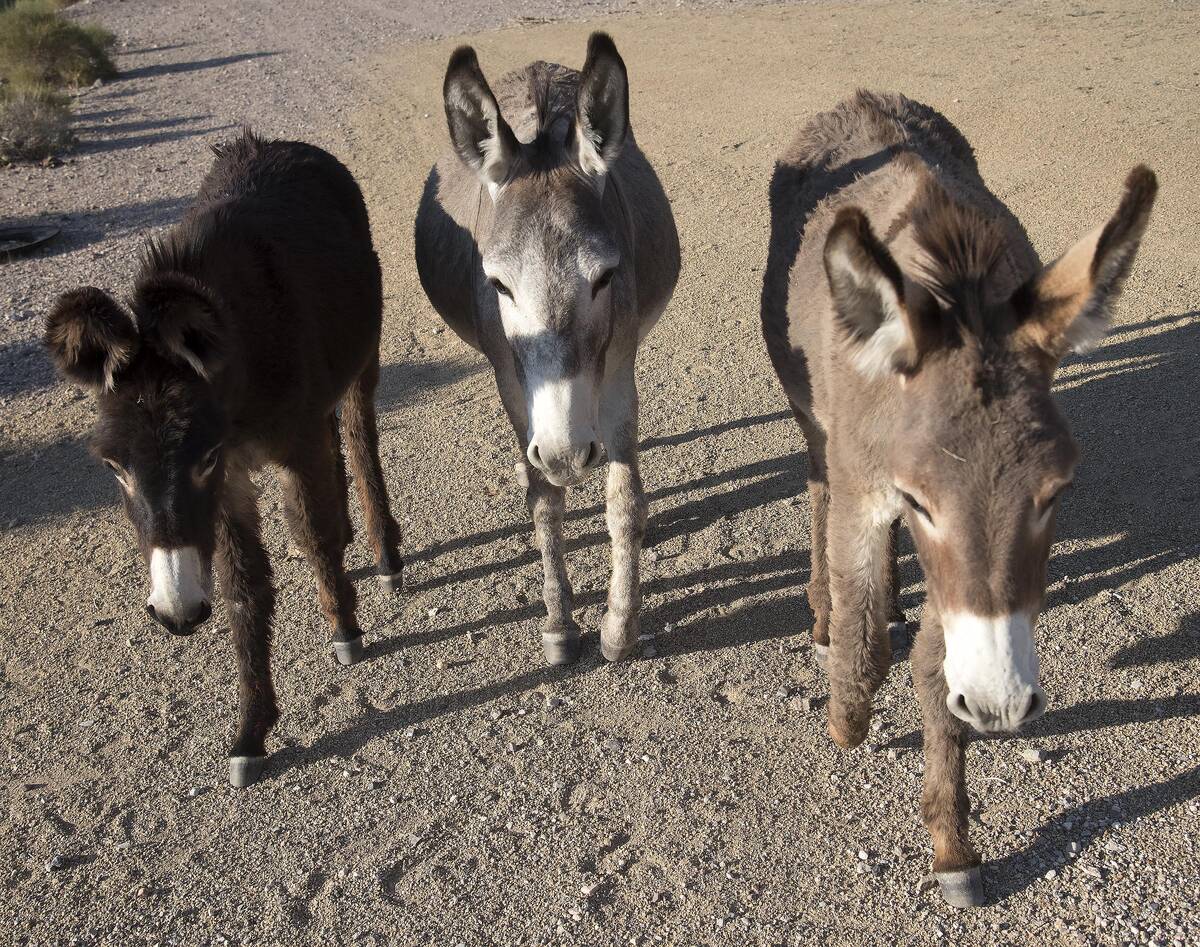Beatty burros are burdening town — officials aim to remove some members of massive herd
BEATTY — Many residents here agree the town suffers from way too much of a good thing, and the Beatty Town Advisory Board wants something done about it.
On Sept. 9 the board voted to send a letter to the BLM requesting a burro gather to remove some of the wild burros from the area.
“We love the burros. They’re part of our community,” said Erika Gerling, chair of the advisory board. “We don’t like them getting hit on the highway.”
But there’s not enough food for them, she said, and when they come into the town limits they are often struck by cars.
The Bullfrog Herd Management Area, which includes Beatty, is grossly overpopulated with wild burros. According to previously stated management goals, the population of the animals should be kept to around 80 burros, but it has far exceeded that number for years. The last time a gather was carried out, there were more than 800 burros, and the BLM removed more than 400, which was the capacity of the agency’s holding facilities.
The 400 or so burros that were left have bred and have likely had their number further augmented by burros that have wandered in from other areas such as the Nevada National Security Site so that a count carried out this past April tallied a whopping 966.
“We are going to have a gather eventually,” says BLM burro specialist Eden Long, “But it has a long bureaucratic road ahead.”
The problem is that a required environmental assessment expired in 2022. Long is working on writing a management evaluation that is a required step along that road.
Beatty has long been known for its wild burro population. Locals have mixed feelings about the animals. Most find them a charming feature of local living, but also have to live with the nuisances the animals can be, such as blocking traffic and occasionally causing accidents, eating landscaping plants, and scattering garbage from trash barrels and even from some dumpsters.
Visitors are particularly charmed by the animals and stop in or beside the road to photograph and feed them. The burros have grown so accustomed to this that they eagerly approach pedestrians and vehicles expecting a handout.
It is arguable that having the burros in town is good for local businesses. It has been shown that something that “stops the wheels turning” causes travelers who have slowed down or stopped to be more likely to notice and patronize businesses.
One downside of having the burros become accustomed to getting treats from passing cars is that they lose fear of people and vehicles. They will stand in the middle of the road or run out into it, and all too often a burro will be hit and killed. This recently happened to a mare who had a young colt. (The BLM arranged foster care for the colt.)
Gerling expressed hope that the BLM might find a way around the problem posed by the expired EA, but it is more likely to take a couple of years for the process to travel that “long bureaucratic road.”
Richard Stephens is a freelance reporter living in Beatty.



















